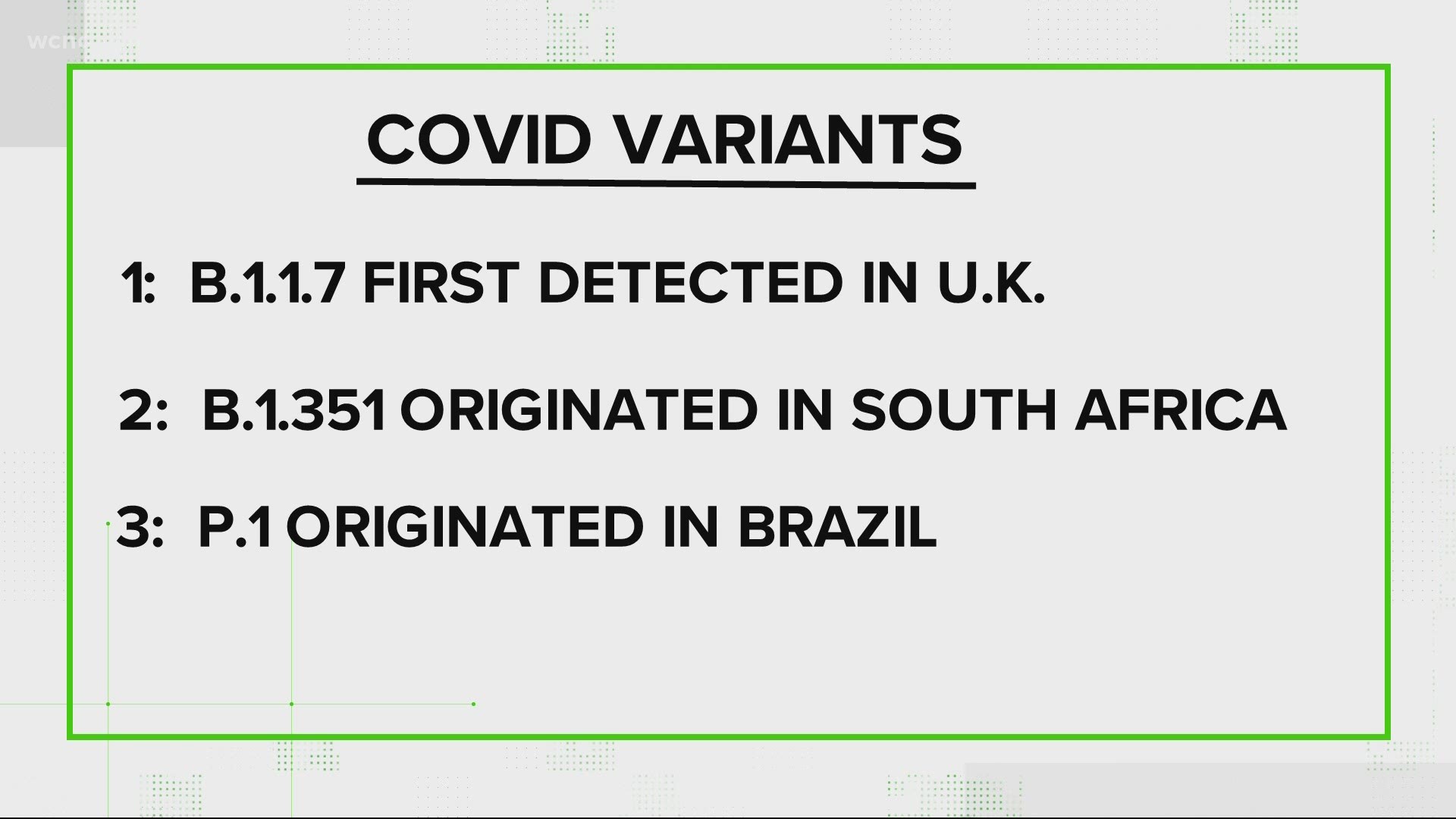CHARLOTTE, N.C. — New research is shedding light on how COVID-19 variants have evolved since the start of the pandemic.
QUESTION: Are coronavirus variants more contagious?
ANSWER: Yes.
Our sources are Harvard Medical School and the Cleveland Clinic.
Guidance posted on Harvard Medical School Harvard Health Publishing focused on these three variants in particular:
- B.1.1.7, first detected in the United Kingdom
- B.1.351, originated in South Africa
- P.1, originated in Brazil
The Centers for Disease Control and Prevention is actively monitoring the variants, providing frequent updated data on where the variants are being detected and how many cases.
These variants have been found in states across the US with all three variants found in North Carolina and at least two of the three detected in South Carolina according to data published by each state health department,
Information published online by Harvard Medical School states:
“All three variants share a key mutation (called N501Y) on the spike protein, which allows the virus to bind more tightly to human cells. This mutation makes the new variants more contagious than previous SARS-CoV-2 variants.”
In fact, research from the Cleveland Clinic studying variants from the first month and a half of the pandemic found those early variants were also more contagious.
Have a relative or friend in another state and want to know when they can get vaccinated? Visit NBC News' Plan Your Vaccine site to find out about each state's vaccine rollout plan.
“The pieces are there. The puzzle is starting to be solved and this is one of those things that help us understand how we got where we are right now and why things look the way they do. And honestly, predicts what they may look like as we continue to go forward,” said Frank Esper, MD, infectious disease specialist for Cleveland Clinic Children's.
Dr. Esper was in charge of the research, which looked at variants from the first six weeks of the pandemic.
That time frame was picked because therapies and treatments had not yet been introduced.
They discovered that the original variants were quick to mutate.
They also found that as variants progressed early in the pandemic, they became less severe but more contagious.
Dr. Esper said they still have a lot to learn about the current variants circulating, including how they interact with the vaccine.
However, by knowing what they do now, Dr. Esper said they’re better able to predict patient outcomes and adjust recommendations about how to help slow the spread of the virus.
“Each of these strains may have a different effect on a person’s severity of illness. And so trying to figure out what strains are worse than others will give us a better risk estimate as a physician, when I am going to be taking care of these patients, what to expect, who is at higher risk than others,” Dr. Esper explained.
Dr. Esper encourages everyone to get vaccinated, which he said will not only help slow the spread of the virus but stop new variants from forming.
Contact Carolyn at cbruck@wcnc.com and follow her on Facebook, Twitter and Instagram.

